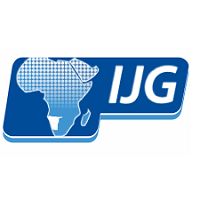Oryx Properties Limited (Oryx) released results for the year ended 30 June 2021 (FY21), reporting 43.0% distribution growth to 99.8cpu from 69.8cpu, with the growth largely attributable to Oryx retaining earnings in FY20. Over the same period earnings attributable to linked units (EPU) increased from a loss of 110.63c to a profit of 111.28c per unit. HEPU rose by 4,520.6% y/y to 179.28c following the 97.2% contraction recorded in FY20.
Net rental income rose by 0.4% y/y to N$227.5 million, compared to N$226.7 million in FY20. Total revenue increased by 1.1% y/y to N$336.5 million, which was ahead of our conservative forecast of a contraction. Management notes in the results release that negative rental reversions were recorded on the large South African national retailers’ lease agreements which were renewed towards the latter part of the financial year. Going forward, we thus expect rental income to remain under pressure. Rental expenses were well contained, increasing by 2.7% to N$109.0 million. Oryx’ cost-to-income ratio increased from 31.9% to 32.4%.
The company reported a profit after tax for the period of N$10.0 million, compared to a loss after tax in FY20 of N$157.6 million. The property portfolio was valued at N$2.78 billion at FY21 by an independent third party, down 2.8% from the FY20 valuation and down 0.6% from the directors’ 1H21 valuation. A negative fair value adjustment of N$94.0 million was reported for the period. Management stated in the results release that a conservative valuation approach was applied to account for the impact of the Covid-19 pandemic, but the 3% and 7% contractions attributed to the retail and residential segments, respectively, suggest that their assumptions were perhaps not conservative enough in the prior period.
Oryx’ vacancy factor (as a % of lettable area) increased moderately from 5.4% at FY20 to 5.9% at FY21. This is hardly surprising given that the economic growth remains depressed. Residential vacancies deteriorated to 11.2% from the 10.8% reported at FY20.






